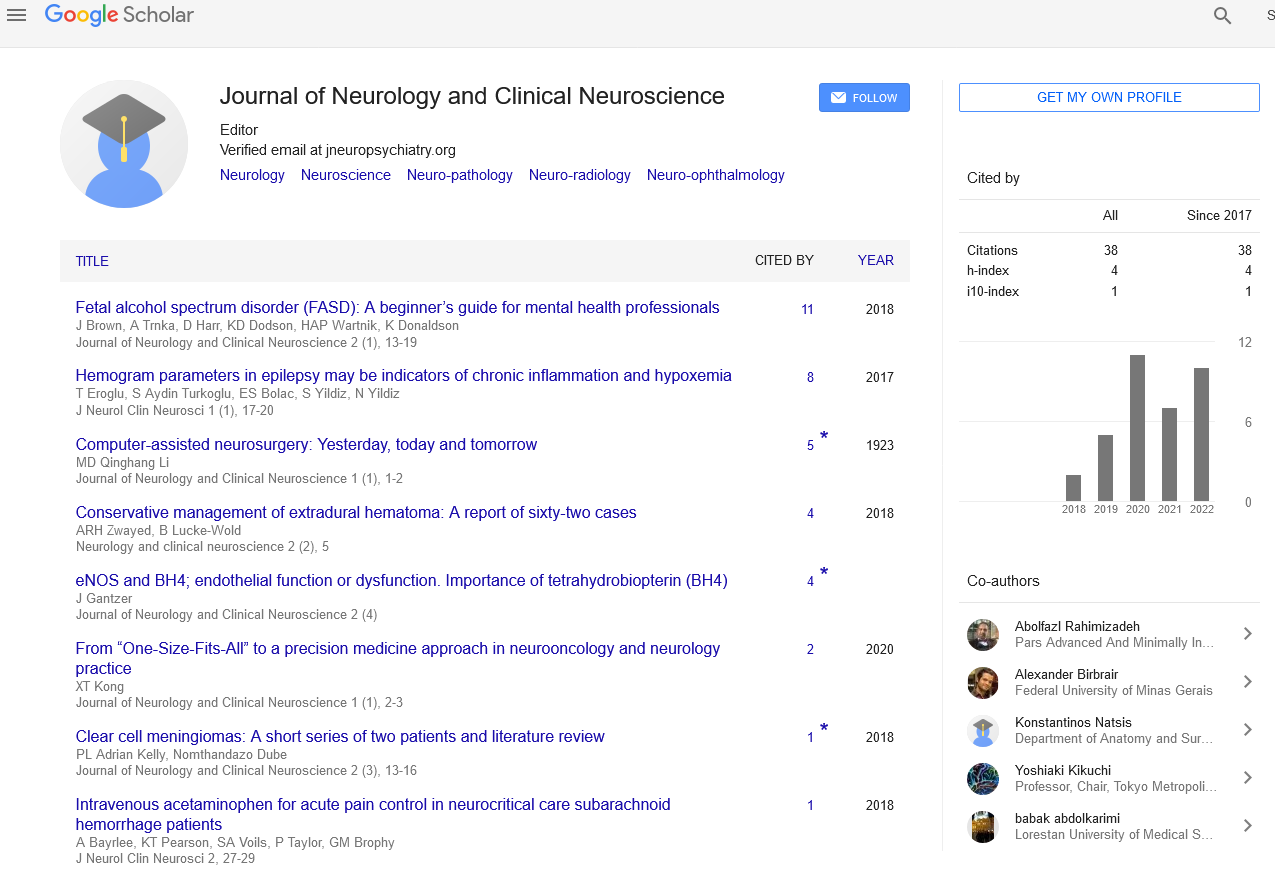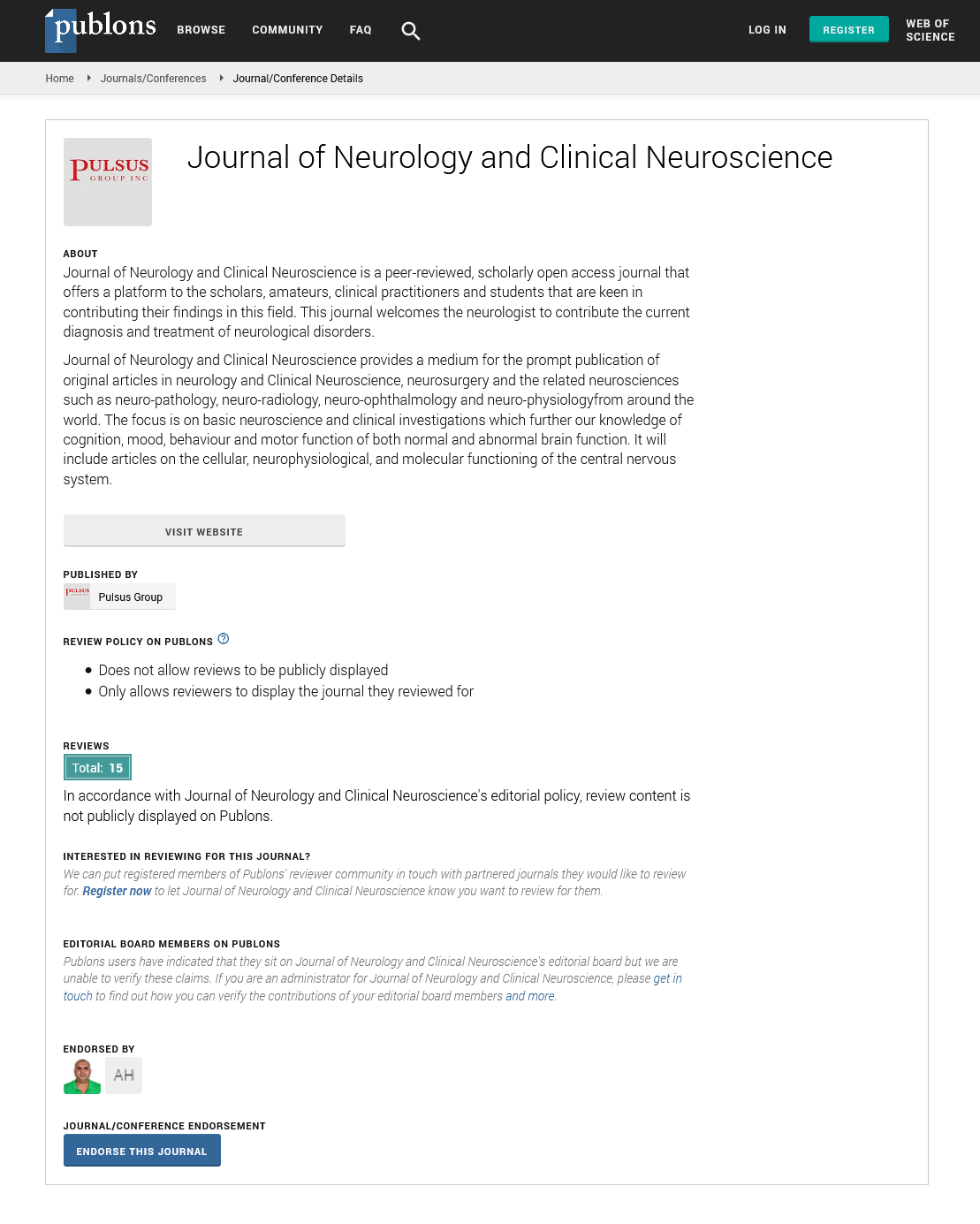Sign up for email alert when new content gets added: Sign up
Effects of Vestibular Rehabilitation on Fatigue and Activities of Daily Living in People with Parkinson's Disease: A Randomized Controlled Trial Study
11th International Conference on Parkinsons and Movement Disorders
December 09, 2022 | Webinar
Amirabas Abasi, Parvin Raji, Joseph H. Friedman, Mohammad-Reza Hadian, Reza Hoseinabadi, Somaye Abbasi, and Ahmadreza Baghestani
Tehran University of Medical Sciences, Iran Warren Alpert School of Medicine at Brown University, USA Brain and Spinal Injury Research Center (BASIR), Iran Shahid Beheshti University of Medical Sciences, Iran
ScientificTracks Abstracts: J Neurol Clin Neurosci
Abstract :
Introduction: One of the most disabling non-motor symptoms in persons with Parkinson’s disease is fatigue, which can decrease the quality of life by restricting the function and Activities of Daily Living (ADL). Nonetheless, sufficient evidence for treating fatigue, including drug or nondrug treatment, is not available. In this study, we evaluated the probable effects of vestibular rehabilitation on fatigue and ADL in patients with Parkinson’s disease. Methods: This was a single-blind clinical trial study in which patients with Parkinson’s disease voluntarily participated based on the inclusion and exclusion criteria. Patients were randomly assigned to the case and control groups. Case group received 24 sessions of vestibular rehabilitation protocol, and conventional rehabilitation was performed in the control group (i.e., 3 sessions each week, each lasted about 60 minutes). Both groups were also given fatigue management advice. Fatigue was measured by the Parkinson Fatigue Scale (PFS) and the Modified Fatigue Impact Scale (MFIS). ADL was measured by the Functional Independence Measure (FIM). All changes were measured from the baseline at the completion of the intervention. Results: Both fatigue (P ≤ 0.001) and ADL (P ≤ 0.001) improved significantly more in the vestibular intervention group than in the control one. Conclusion: Vestibular rehabilitation may improve fatigue and ADL and therefore can be used as an effective intervention for patients with Parkinson’s disease, which was also found to be well tolerated. Recent Publications 1. Amirabas Abasi, Reza Hoseinabadi, Parvin Raji,Evaluating Oculomotor Tests before and after Vestibular Rehabilitation in Patients with Parkinson's Disease doi: 10.1155/2022/6913691 2. Abasi, Amirabas et al. “Effects of Vestibular Rehabilitation on Fatigue and Activities of Daily Living in People with Parkinson's Disease: A Pilot Randomized Controlled Trial Study.” Parkinson's disease vol. 2020 8624986. 10 Sep. 2020, doi:10.1155/2020/8624986
Biography :
Amirabas is an occupational therapist from Iran. He got my master's degree from Tehran University of Medical Sciences. He is working in this field of neuroscience work for more than five years and He interested in pursuing PhD degree. He has published more than 10 papers in reputed journals and has been serving as an editorial board member of repute.





